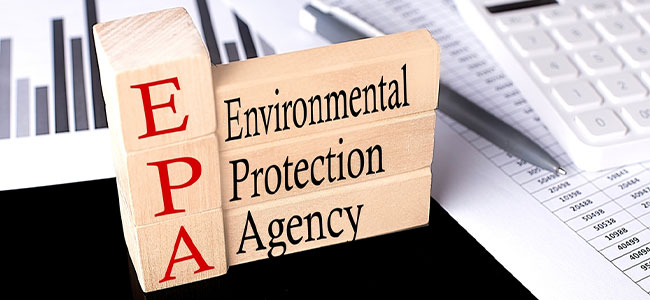
EPA Awards Over $2.1 Million for Small Business Research Funding
Twenty-two small businesses will each receive $100,000 to develop new environmental technology.
- By Robert Yaniz, Jr.
- Dec 20, 2023
As part of its Small Business Innovation Research program (SBIR), the U.S. Environmental Protection Agency (EPA) has allocated $2,198,867 in research funding to 22 small businesses, supporting the development of technologies safeguarding human health and the environment.
According to a release dated Dec. 19, this initiative focuses on promoting cutting-edge solutions to environmental challenges. The EPA's Phase I awards total up to $100,000 for six months and will provide the necessary resources for proof of concept of the proposed technologies. Successful companies may then apply for a Phase II award of $400,000 to further develop and commercialize their innovations.
“EPA’s small business research funding allows us to harness the cutting-edge technology these small companies are developing to help solve complex environmental issues,” Chris Frey, assistant administrator of EPA’s Office of Research and Development, said in a statement. “EPA’s funding will help these businesses move their designs from concept to reality and help grow the green economy.”
The funded projects cover a diverse range of environmental concerns, including the development of a self-cleaning indoor air purification system for use during wildfires, an AI-based mapping tool to aid first responders during disasters and a reactor designed to remove per-and polyfluoroalkyl substances (PFAS) from sewage waste.
Here is the full list of SBIR Phase I winners:
- Creekside Environmental Products (Starkville, Miss.) to develop low-cost adsorbents from waste products like rice hulls and biochar to reduce PFAS in drinking water, wastewater, and agricultural systems.
- Fourth State, LLC (Ann Arbor, Mich.) to develop a plasma reactor that destroys PFAS and removes heavy metals in landfill leachate and other wastewaters.
- IM Technologies (Shoreham, N.Y.) to develop a plasma system to degrade PFAS levels for water purification and reuse.
- River Otter Renewables, Inc. (Stow, Mass.) to develop a reactor to remove PFAS from sewage waste and transform it into a renewable energy source.
- Water Illumination, Inc. (Irvine, Calif.) to develop technology using UV light to destroy PFAS in wastewater without producing harmful byproducts.
- Triton Systems, Inc. (Chelmsford, Mass.) to develop a microsensor technology to remotely identify harmful algae blooms and toxins in terrestrial water.
- DiPole Materials (Baltimore, Md.) to develop affordable, adaptable, and effective biodegradable filters made from nanofibers to clean indoor air during wildfires.
- Metalmark Innovations, PBC (Cambridge, Mass.) to develop a low-maintenance, low-waste, self-cleaning air purification system to protect against wildfire smoke.
- Holochip Corporation (Torrance, Calif.) to develop a mobile mapping application that does not require access to GPS, Bluetooth, or Wi-Fi for users in disaster areas.
- VISIMO, LLC (Carnegie, Pa.) to develop an AI-based indoor mapping tool to support first responders and other response personnel in disaster areas.
- GreenLifeTech Corporation (Banner Elk, N.C.) to develop a system for increasing the shelf-life of produce by recirculating oxygen in refrigerators.
- SafetySpect, Inc. (Grand Forks, N.D.) to develop a handheld device to determine the shelf life of red meat to reduce unnecessary waste.
- ChemFinity Technologies, Inc. (Brooklyn, N.Y.) to develop a method to extract and recycle precious metals from solid waste, including from catalytic converters.
- KLAW Industries, LLC (Binghamton, N.Y.) to develop an autonomous robotic system for sorting recycling that improves recovery and reduces cost.
- Recirclable, LLC (Arlington, Mass.) to develop an innovative approach to increase reuse in restaurant takeout practices and reduce single-use container waste.
- Valis Insights, Inc. (Worcester, Mass.) to develop an AI-powered software tool to recover valuable materials from metal recycling.
- Acadian Research & Development, LLC (Laramie, Wyo.) to develop an environmentally friendly, low-cost method of producing graphene oxide from wood waste to increase concrete strength and reduce the amount of concrete needed for construction projects.
- Lab to Market Fund, LLC, DBA Adhesion Technologies (Cambridge, Mass.) to develop novel bio-based adhesives for wood products in the construction industry to mitigate carbon dioxide and other emissions.
- Material Reuse, LLC (Gainesville, Fla.) to develop a time-efficient and robust assessment of existing buildings for salvageable and reusable products and materials prior to demolition.
- The SMART Tire Company, Inc. (Akron, Ohio) to develop an innovative and safe process for the reuse and recycling of superelastic shape memory alloys for airless, never-flat tires.
- Molecular Rebar Design, LLC (Austin, Texas) to develop carbon nanotubes as an alternative to 6PPD to strengthen tires, preventing microcracks and premature tire failure.
- GreenTechnologies, LLC (Jacksonville, Fla.) to develop a technology to transform food waste into enhanced efficient fertilizers.
About the Author
Robert Yaniz, Jr. is the Content Editor for Environmental Protection.